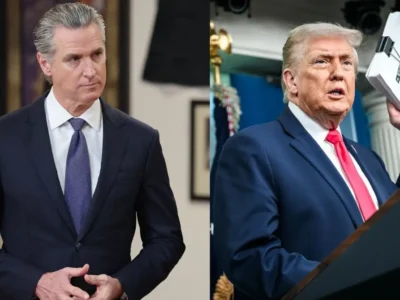Climate Politics and the Urban-Rural Split
How do we sell climate policies to huge swathes of Trump country?
The 2020 elections revealed America as bitterly divided as ever. The split between rural and urban voters is intensifying, with rural voters delivering massive support to Trump and down ticket Republicans. Success in decarbonizing the economy will ultimately require the support of those voters. Short of a miraculous turnaround in attitudes about climate change, how can we get them on board?
Part of the answer lies in disaggregating climate policies. A sweeping national campaign against climate change may spark instinctive rejection from rural areas. Many specific climate policies, however, may find it easier to gain rural support.
Renewable energy is one example. States from North Dakota down to the panhandle of Texas have tremendous wind resources. Most of those states produce much of their electricity from wind. Wind power correspondingly has strong political support in those areas. No one in the Senate is more fervent in his belief in wind power than Iowa’s Chuck Grassley. Even more wind power could be produced by those states with improvements in the transmission system. In other parts of the country, rural areas will be prime territory for solar farms. Like everyone else, people in rural areas are responsive to income opportunities. Thus, policies to strengthen renewable energy should be able to get broad support.
Biofuels of various kinds are another winner in rural areas. Look how fiercely Midwestern farmers defend corn ethanol for car fuel. Advanced biofuels would have many advantages over corn ethanol in environmental terms and would broaden the base of political support to include even more producers. We should continue to push research in this area, even if those fuels are likely to serve mostly as a bridge to an all-electric future for transportation.
Sustainable agriculture is receiving increasing attention from policy analysts. Increasing the amount of carbon sequestered in soils might not be a gamechanger, but it would make a significant difference. Funding for farmers attached to such a program might get one support. It would also have another advantage. Once you create a farm support program, it’s an enormous political lift to get rid of it.
In connection with a push for sustainable agriculture, we should ramp up the USDA’s extension service. Farmers are also going to need help dealing with a rapidly shifting climate. Rural extension needs to expand to give them that help and to show them how to move toward more sustainable farming methods. Similarly, we need to increase funding to Ag schools. They’ve tended to fade as the farming population has shrunk. But if we’re serious about things like improving the sustainability of agriculture, we’re going to need more research to do it properly.
What I’ve said so far has been aimed at farm communities. Fossil fuel production is also heavily rural. There are reasons to doubt that carbon capture and sequestration for natural gas electricity generators is an ideal emission reduction strategy. It may still be worth investing in R&D in order to provide a softer landing for people in much of the Gulf Coast and fracking areas in the interior.
In an ideal world, once people understood the science, they would grasp the need for climate action. In our reality, there are millions of our fellow citizens who won’t even wear a mask to protect themselves and others from a deadly crisis. We should all work to improve our communication and try to find out ways to reach out to these people and respond to their concerns. In the meantime, though, we need to find ways to sidestep the ideological blinders that lead to such counterproductive attitudes. We can’t wait to make progress on climate policy until everyone has seen the light.
Reader Comments
One Reply to “Climate Politics and the Urban-Rural Split”
Comments are closed.







This is good and timely paper. However when areas are looked at more closely there are problems that need more investigation. Some cases such as Calif. Oregon, Washington, Georgia , most of the midwest and northeast.
There needs to be “deeper” look into these areas. The results will raise the issue of Urban-Rural split. If need help on this let e know.